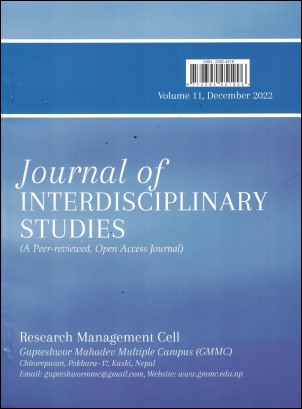Impact of Organizational Citizenship Behaviour on Organizational Commitment: Evidence from University Faculty
DOI:
https://doi.org/10.3126/jis.v11i1.58678Keywords:
Affective, demographic characteristics, faculty members, organizational citizenship behaviour, organizational commitmentAbstract
The present research has been carried out to determine the OCB impact on OC (Organizational Commitment) among university teachers (faculty members). Positivism research philosophy and descriptive and causal comparative research design were employed in the study. Multistage sampling was employed in the study including 164 faculty members in Pokhara, Nepal as a sample size. Primary sources of data were used through questionnaires and statistical tools were employed as per the necessity to fulfil the research gap. The study revealed that sportsmanship behaviour denoted as OCBSPO was the least among university teachers in Pokhara. On the other hand, courtesy behaviour as denoted by OCB was perceived as the highest contributing factor of OCB. The study revealed a higher level of normative commitment (OCNOR) among the faculty members. The present study demonstrates that significant impact has been observed in civic virtue (OCBCIV) and courtesy (OCBCOU) and Civic Virtue (OCBCIV) dimensions on organizational commitment (OC). The research has policy implications as the findings of this research can be used by university authorities to further develop human resource policies. The future researcher needs to conduct research on the same area employing a larger sample, including different constructs and also to examine the impact of COVID-19 on organizational commitment.




